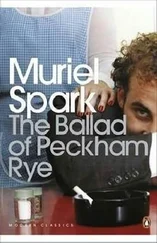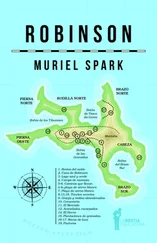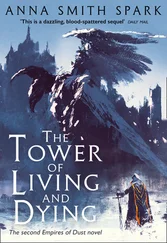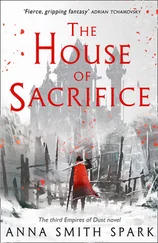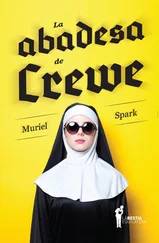"A lot in common? It's only Wednesday now."
_Like one, that on a lonesome road__
_Doth walk in fear and dread,__
_And having once turned round, walks on,__
_And turns no more his head;__
_Because he knows a frightful fiend__
_Doth close behind him tread.__
"Joanna's marvellous at that one, I love it."
"Poor Joanna."
"Why do you say poor Joanna?"
"Well, she never gets any fun, no men-friends."
"She's terribly attractive."
"Frightfully attractive. Why doesn't someone do something about Joanna?"
Jane said, "Look here, Nicholas, there's something you ought to know about Huy Throvis-Mew as a firm and George himself as a publisher."
They were sitting in the offices of Throvis-Mew, high above Red Lion Square; but George was out.
"He's a crook," said Nicholas.
"Well, that would be putting it a bit strongly," she said.
"He's a crook with subtleties."
"It's not quite that, either. It's a psychological thing about George. He's got to get the better of an author."
"I know that," Nicholas said. "I had a long emotional letter from him making a lot of complaints about my book."
"He wants to break down your confidence, you see, and then present you with a rotten contract to sign. He finds out the author's weak spot. He always attacks the bit the author likes best. He-"
"I know that," said Nicholas.
"I'm only telling you because I like you," Jane said. "In fact, it's part of my job to find out the author's weak spot, and report to George. But I like you, and I'm telling you all this because-"
"You and George," said Nicholas, "draw me a tiny bit closer to understanding the Sphinx's inscrutable smile. And I'll tell you another fact."
Beyond the grimy window rain fell from a darkening sky on the bomb-sites of Red Lion Square. Jane had looked out in an abstract pose before making her revelation to Nicholas. She now actually noticed the scene, it made her eyes feel miserable and her whole life appeared steeped in equivalent misery. She was disappointed in life, once more.
"I'll tell you another fact," said Nicholas. "I'm a crook, too. What are you crying for?"
"I'm crying for myself," said Jane. "I'm going to look for another job."
"Will you write a letter for me?"
"What sort of a letter?"
"A crook-letter. From Charles Morgan to myself. Dear Mr. Farringdon, When first I received your manuscript I was tempted to place it aside for my secretary to return to you with some polite excuse. But as happy chance would have it, before passing your work to my secretary, I flicked over the pages and my eyes lit on…"
"Lit on what?" said Jane.
"I'll leave that to you. Only choose one of the most concise and brilliant passages when you come to write the letter. That will be difficult, I admit, since all are equally brilliant. But choose the piece you like best. Charles Morgan is to say he read that one piece, and then the whole, avidly, from start to finish. He is to say it's a work of genius. He congratulates me on a work of genius, you realise. Then I show the letter to George."
Jane's life began to sprout once more, green with possibility. She recalled that she was only twenty-three, and smiled.
"Then I show the letter to George," Nicholas said, "and I tell him he can keep his contract, and-"
George arrived. He looked busily at them both. Simultaneously, he took off his hat, looked at his watch, and said to Jane, "What's the news?"
Nicholas said, "Ribbentrop is captured."
George sighed.
"No news," said Jane. "Nobody's rung at all. No letters, nobody's been, nobody's rung us up. Don't worry."
George went into his inner office. He came out again immediately.
"Did you get my letter?" he said to Nicholas.
"No," said Nicholas, "which letter?"
"I wrote, let me see, the day before yesterday, I think. I wrote-"
"Oh, that letter," said Nicholas. "Yes, I believe I did receive a letter."
George went away into his inner office.
Nicholas said to Jane, in a good, loud enough voice, that he was going for a stroll in the Park now that the rain had stopped, and that it was lovely having nothing to do but dream beautiful dreams all the day long.
"Yours very sincerely and admiringly, Charles Morgan," wrote Jane. She opened the door of her room and shouted, "Turn down the wireless a bit, I've got to do some brain-work before supper."
On the whole, they were proud of Jane's brain-work and her connection with the world of books. They turned down all the wirelesses on the landing.
She read over the first draft of the letter, then very carefully began again, making an authentic-looking letter in a small but mature hand such as Charles Morgan might use. She had no idea what Charles Morgan's handwriting looked like; and there was no reason to find out, since George would certainly not know either, and was not to be allowed to retain the document. She had an address at Holland Park which Nicholas had supplied. She wrote this at the top of her writing paper, hoping that it looked all right, and assuring herself that it did, since many nice people did not attempt to have their letter-heads printed in wartime and thus make unnecessary demands on the nation's labour.
She had finished by the time the supper-bell rang. She folded the letter with meticulous neatness, having before her eyes the pencil-line features of Charles Morgan's photograph. Jane calculated that this letter by Charles Morgan which she had just written was worth at least fifty pounds to Nicholas. George would be in a terrible state of conflict when he saw it. Poor Tilly, George's wife, had told her that when George was persecuted by an author, he went on and on about it for hours.
Nicholas was coming to the club after supper to spend the evening, having at last persuaded Joanna to give a special recital of _The Wreck of the Deutschland__. It was to be recorded on a tape-machine that Nicholas had borrowed from the news-room of a Government office.
Jane joined the throng in its descent to supper. Only Selina loitered above, finishing off her evening's disciplinary recitation:
… _Elegant dress, immaculate grooming, and perfect deportment all contribute to the attainment of self-confidence__.
The warden's car stopped piercingly outside as the girls reached the lower floor. The warden drove a car as she would have driven a man had she possessed one. She strode, grey, into her office and shortly afterwards joined them in the dining room, banging on the water-jug with her fork for silence, as she always did when about to make an announcement. She announced that an American visitor, Mrs. G. Felix Dobell, would address the club on Friday evening on the subject "Western Woman: Her Mission." Mrs. Dobell was a leading member of the Guardians of Ethics and had recently come to join her husband who was serving with the United States Intelligence Service stationed in London.
After supper Jane was struck by a sense of her treachery to the establishment of Throvis-Mew, and to George with whom she was paid to conspire in the way of business. She was fond of old George, and began to reflect on his kindly qualities. Without the slightest intention of withdrawing from her conspiracy with Nicholas, she gazed at the letter she had written and wondered what to do about her feelings. She decided to telephone to his wife, Tilly, and have a friendly chat about something.
Tilly was delighted. She was a tiny red-head of lively intelligence and small information, whom George kept well apart from the world of books, being experienced in wives. To Tilly, this was a great deprivation, and she loved nothing better than to keep in touch, through Jane, with the book business and to hear Jane say, "Well, Tilly, it's a question of one's raison d'кtre." George tolerated this friendship, feeling that it established himself with Jane. He relied on Jane. She understood his ways.
Читать дальше
